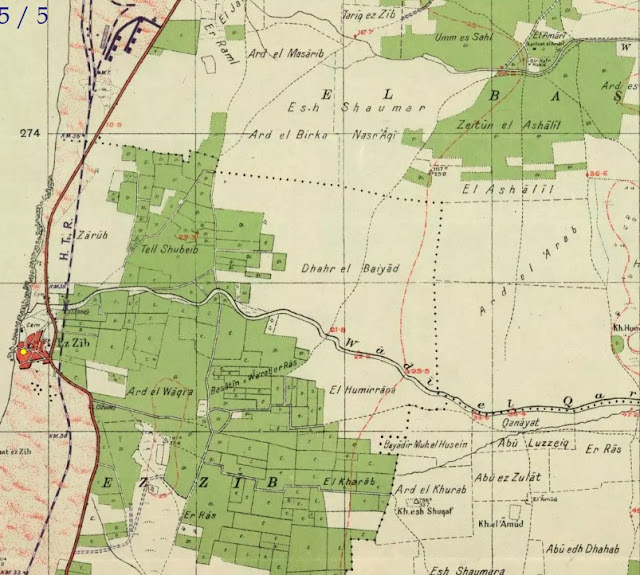Keith Wheeler, a Chicago Sun-Times correspondent, reported on how the Jews fought War of Independence in this article published by the Palestine Post on June 14, 1948.
He found that the Haganah soldiers were very informal with their own officers; rank meant little besides authority. Most Arab towns at that point were captured with very little fighting; the Arab fighters would run away after a short firefight and then the residents would follow. Only one town, from which the residents would shoot at convoys, was mentioned as being destroyed (to avoid anyone using those buildings as cover again.)
The Jews "are distinctly not looters. "
WITH THE HAGANAH ON THE LEBANESE BORDER, June 5. — From the G.I’s point of view, this war seems about like any other war — 99 percent griping and waiting and one percent action.During the last two days, I have ranged most of what—for lack of better name—can be called the Lebanese front. The trip has Carried us northward from captured Acre through the scenes of four recent battles, along the border where Jewish and Arab soldiers watch one another politely at pistol point. ‘This was one of those waiting periods, In 48 hours, I failed to hear a single shot fired in anger.Meanwhile, however, I enjoyed the opportunity to Iearn something about the techniques of this perplexing war and the personalities of the Jewish G.I.s.One discovers that the Jewish soldier resembles any other soldier. He loves to brag. He holds his enemy in vast contempt. He collects souvenirs as ardently as a United States marine. On the slightest provocation, he whips out snap-shots of children, wives and sweethearts, He is hospitality personified.He is distinguished from other soldiers by several singular differences. He doesn’t want his name in the papers. By habit of many years, he yearns almost pathologically for anonymity. He is completely without rank consciousness and if so moved, never ‘hesitates to call a company commander “fathead” in his presence.There is no “brass” in the Haganah, which seems to account for the lack of class distinction between officer and enlisted man. Nobody salutes anybody and nobody wears any insignia of rank. Indeed, no hard, fast classification appears to exist between enlisted men and officers. To an outsider, soldiers refer to themselves vaguely as “bren gunner,” “sniper” or “commander”. Such tags as private first class, sergeant or colonel just don't exist. Commanders and G.I.s eat together, bunk together and on leave drink in the same bars.“The only difference is authority, and that is never questioned,” the commander of an outfit on the border told me while lunching on macaroni and liberated Arab chicken in his abode, a house once occupied by an Arab pasha.In this talent for liberating such enemy captives as chickens and donkeys, the Jewish soldier likewise resembles his colleagues in other armies.The kind of war they have been fighting leaves remarkably little destruction in its wake. Except for the Arab village Assumeria [al-Sumayriyya], straddling the road north of Acre, there is scarcely a dented building in all of Northern Palestine. The Jews got sore at Assumeria because its denizens persistently ambushed Jewish convoys and shot up drivers. And as soon as they captured the place, they systematically blew it up with dynamite leaving only the mosque standing out of the town’s hundred buildings.Acre town itself and such Arab border towns as Azzib and Bassa show hardly any scars of battle except for a weird air of desertion.The Haganah is remarkably shy of discussing weapons or tactics.Nevertheless, one gathers that the average village attack runs something like this: Jews open up on the town with small mortars, rifles, Sten-guns and machine-guns in the middle of the night. Generally, they have the defenders previously spotted in such buildings as police stations. A few hours of. this commonly serves to discourage the defenders, who then take to the hills followed by the entire population except the cats and dogs and those humans too sick or old for walking.One may be pardoned for suspecting that the Haganah —-especially the top commanders-— are inclined to exaggerate the enemy's strength. The Area Commander, for example, solemnly swore his soldiers drove 1,500 fanatic Iraqi warriors out of Bassa. More realistic Jewish soldiers on the actual scene guessed the enemy at. around 300.Except for small portable souvenirs, such as daggers and abandoned tarbushes, Jewish soldiers leave captured towns pretty much intact. They are distinctly not looters.It should be said, however, that the average Jewish soldier regards the enemy as fearfully unsanitary as well as unheroic, There is very little an Arab leaves behind that the averape Jew would touch with a ten foot pole.With the possible but unlikely exception of Jerusalem, there his been no battle anywhere in this war which could compare in any way with the intensity, weight of weapons, destruction or wholesale death as, for example, the most insignificant Pacific Island battle of the recent world war. On the other hand, this observation is not meant as a reflection on the quality of this war. To the soldier fighting it, the biggest war is no bigger than the bullet which hits him.
|
’
|
Or order from your favorite bookseller, using ISBN 9798985708424. Read all about it here! |

|


